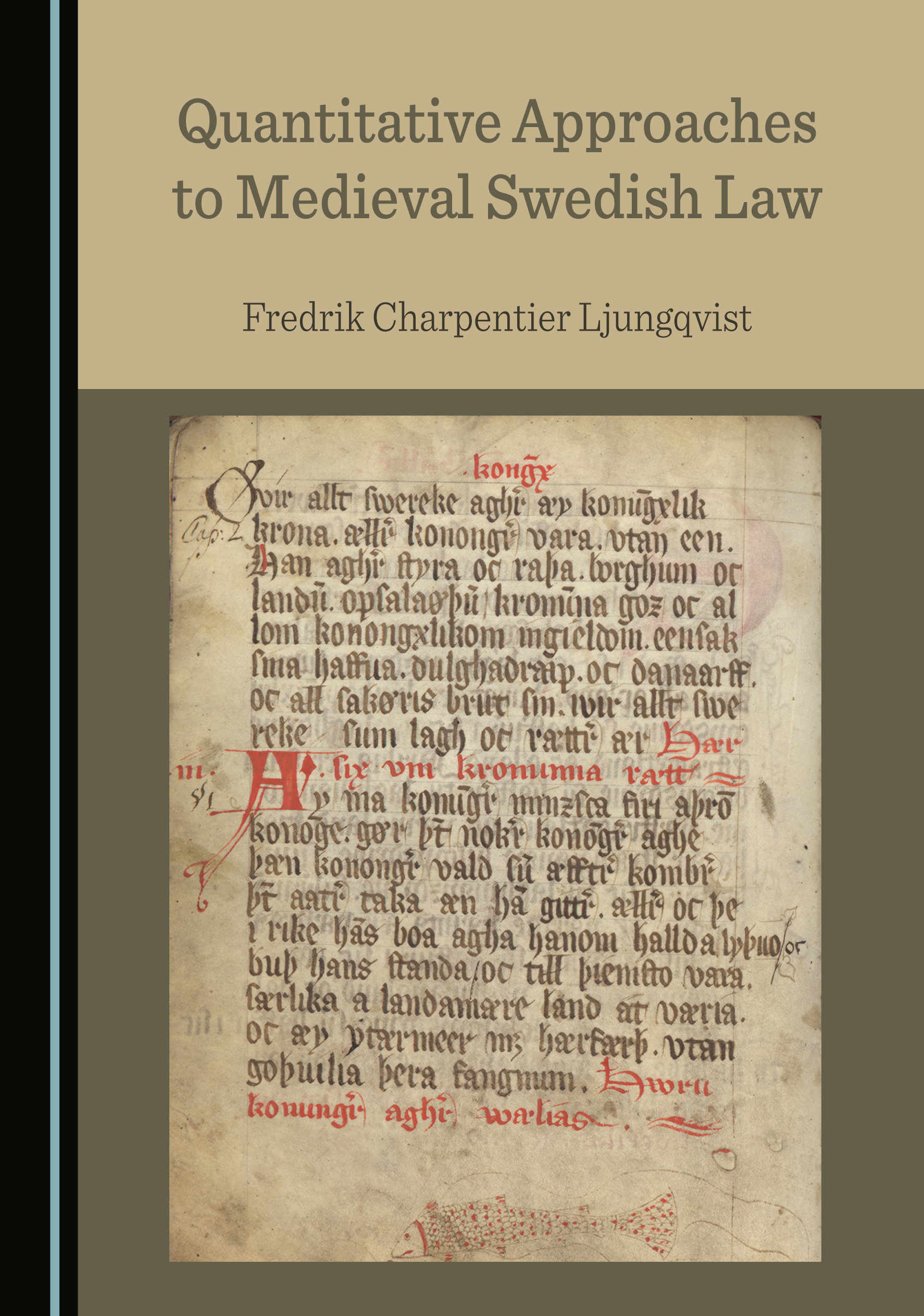ABOUT THE BOOK
This book presents a novel framework for studying historical legalisation using quantitative methods, with 10 fully-preserved laws from medieval Sweden, written between c. 1225 and 1350, serving as a case study. By applying a systematic classification scheme to each legal provision, it is possible to investigate the major differences and similarities in structure and content between the 10 laws. This, in turn, allows for the re-assessment of many long-standing problems in Swedish and European medieval legal history that have been challenging to address with traditional methods based on text analyses. Over the course of the thirteenth and fourteenth centuries, major changes in the proportion of legal provisions devoted to different fields of law, and to prescribed consequences, are found. The book shows how the proportions of civil law and public law expanded at the expense of criminal law. Furthermore, a clear transition from casuistic to more abstract law provisions can also be witnessed.
ABOUT THE AUTHOR
Fredrik Charpentier Ljungqvist is Associate Professor of both History and Physical Geography at Stockholm University, Sweden. His current research interests range from medieval Scandinavian law to the link between past climate variability and historical harvest yields, the effect of plague outbreaks on the history of European building activity, and socio-political aspects of historical food (in)security. He is the author and co-author of more than 80 peer-reviewed articles and the author of four popular science books, and an experienced university teacher and popular science lecturer. As a Pro Futura Scientia Fellow at the Swedish Collegium for Advanced Study, he leads the interdisciplinary project “Disentangling socio-political and climatic factors for food insecurity in early modern Europe (c. 1500–1800)”.
More information can be found here.


No comments:
Post a Comment